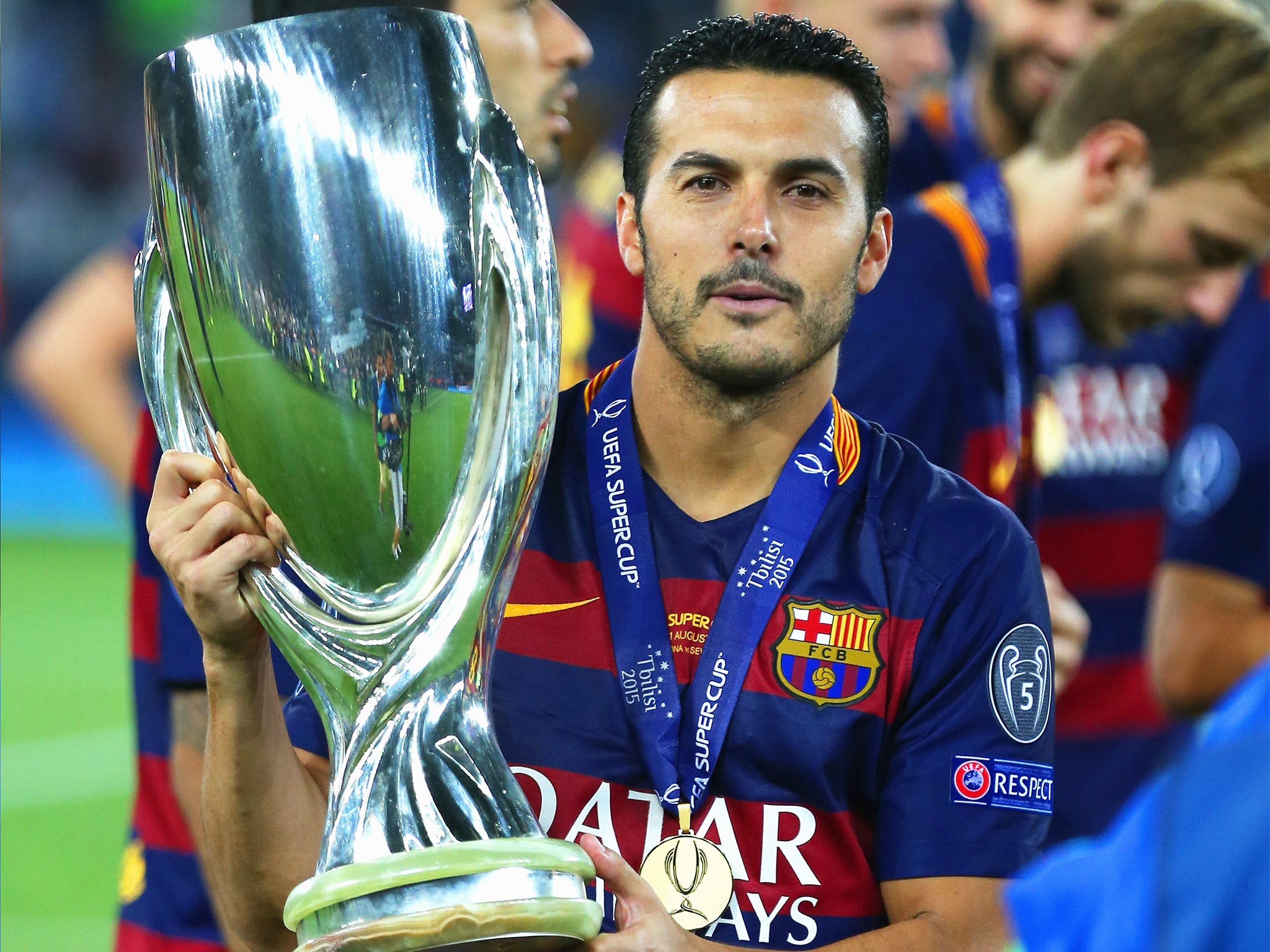Pedro to Chelsea: Barcelona's glorious afterthought grew tired of his life on the bench
Signing of Luis Suarez last year finally convinced winger that for all his success as a super-sub it was time to quit the Nou Camp

Your support helps us to tell the story
From reproductive rights to climate change to Big Tech, The Independent is on the ground when the story is developing. Whether it's investigating the financials of Elon Musk's pro-Trump PAC or producing our latest documentary, 'The A Word', which shines a light on the American women fighting for reproductive rights, we know how important it is to parse out the facts from the messaging.
At such a critical moment in US history, we need reporters on the ground. Your donation allows us to keep sending journalists to speak to both sides of the story.
The Independent is trusted by Americans across the entire political spectrum. And unlike many other quality news outlets, we choose not to lock Americans out of our reporting and analysis with paywalls. We believe quality journalism should be available to everyone, paid for by those who can afford it.
Your support makes all the difference.The Uefa Super Cup final last week gave Pedro his 20th winners’ medal at Barcelona, and that night in Tblisi was his career in 120 minutes – he did not start the game but he did finish it, in every sense of the word, scoring the winning goal against Seville six minutes from the end of extra-time.
Year after year at Barcelona Pedro has been a glorious afterthought – the person everyone had down as 12th man when the campaign began but who ended up being one of the most important players.
In an interview during the 2013-14 season, he told me: “When I started we had Samuel [Eto’o] and Titi [Thierry Henry]. Then Zlatan [Ibrahimovic] came. Now we have Alexis [Sanchez], [Lionel] Messi, Neymar. Another new signing, another big name, will probably arrive in the summer but I will just keep going.”
He was right about what the summer would bring because Barça signed Luis Suarez for £75m, and the son of a Tenerife petrol station attendant, who grew up to win the World Cup with Spain, was back on the bench.
Last season it was evident that he had become disillusioned with a role he once embraced. In 2011, it seemed he had established himself in the starting line-up alongside David Villa and Messi. Barça reached the Champions League final at Wembley and Pedro scored in the 3-1 win over Manchester United. But even that was not enough to change his image as a reliable player rather than a great one. Gradually he began to see the modesty which had been one of his endearing qualities was his own worst enemy.
He used to tell the story of his league debut in the 2008-09 season when, after coming on as a substitute for Eto’o, he had to tell Henry that he should move to a more central position. “I said: ‘Titi, the boss wants you to play through the middle’ and Henry looked at me as if to say ‘what the hell is this little guy trying to tell me?’”
Those anecdotes fitted the image of the player who made his debut with “Pedrito” on his shirt, having been promoted from the B team by Pep Guardiola, but he felt he had outgrown them.
Now 28, and with a European Championship to look forward to next summer, Pedro had started to wonder if he should not be asking more from his career before it is too late.
The arrival of Suarez was perhaps the final push. The way the former Liverpool striker clicked with Messi and Neymar provoked a renegotiation of Pedro’s contract in the middle of last season, bringing his buy-out clause down from the symbolic “not for sale” €150m, to €30m (£21m). The club agreed that if a buyer met that price he could leave.
Fitting in on the pitch will not be a problem at Chelsea. There is no reason to believe he will have any more difficulty adapting to the English game than his international team-mates, David Silva, Santi Cazorla and Jesus Navas.
Cesc Fabregas talks about La Liga imports to the Premier League benefiting from the sense of tactical chaos in so many top-flight English games. The feeling among the Spanish is that the first wave of pressure from teams is brutal, but once you have got beyond that the space opens up. He should thrive.
Off the pitch, the presence of friends from the Spain camp, Diego Costa and Cesar Azpilicueta, will help and Fabregas – who also left Barcelona with a feeling that he was under-appreciated – will act as a role model and guide.
A phone call from Fabregas helped persuade Pedro to move to London, although it was a call from Jose Mourinho that seems to have been most crucial. The Chelsea manager also knows what it’s like not to have your talents properly recognised at Barcelona. They treated him well enough as a coaching assistant but never wanted him back as coach.
Mourinho’s title-winning team last season had an established second line of Willian, Oscar and Eden Hazard and some Barcelona supporters – feeling scorned – have already asked if Pedro might not struggle to get the greater game-time he desires. Having taken on Ibrahimovic, Henry, Eto’o and Sanchez in his time at the Nou Camp, he’s probably not too worried about that.
Join our commenting forum
Join thought-provoking conversations, follow other Independent readers and see their replies
Comments